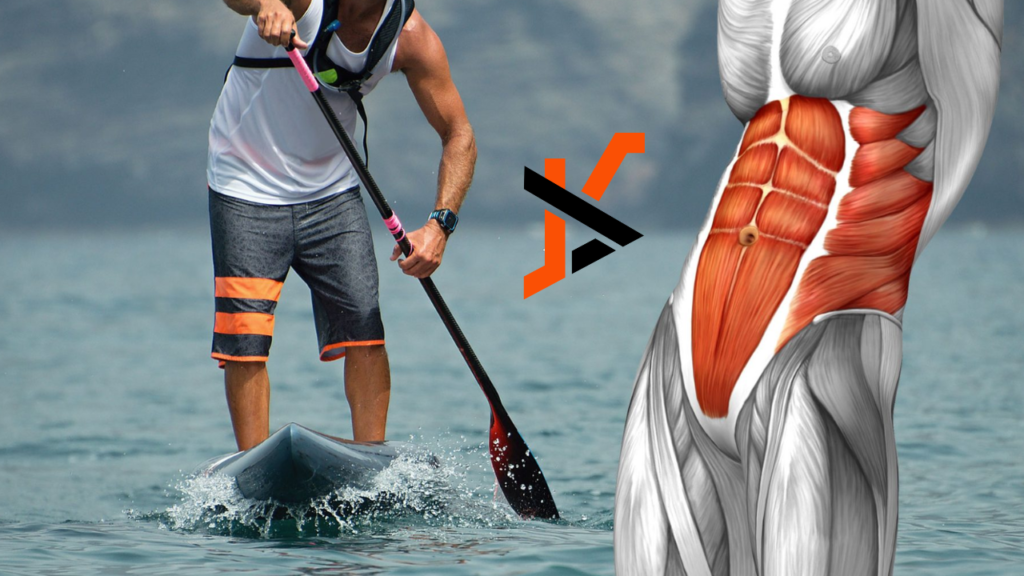Welcome to the paddle boarding world, where the thrill of gliding on water has many health benefits. Beyond the sheer enjoyment, paddleboarding has emerged as a holistic way to boost physical and mental well-being. In this exploration, we’ll delve into the surprising ways paddleboarding contributes to cardiovascular fitness, mental health, and much more.
Physical Health Benefits
Paddleboarding isn’t just a leisurely cruise; it’s a full-body workout that engages multiple muscle groups. As you paddle, your core muscles, arms, and legs work harmoniously, enhancing cardiovascular fitness. Rhythmic paddling builds endurance and contributes to weight management by burning calories. So, that serene paddle across the lake? It’s also a stealthy workout for your body. If you’re new to this activity, click on the link for SUP tips for beginners.
Mental Health Benefits
Picture this: gliding across calm waters, surrounded by nature’s serenity. Paddleboarding offers more than a physical workout; it’s a mental escape. The peacefulness of being on the water fosters stress reduction and promotes mindfulness. With each stroke, you find a moment of relaxation, leaving the day’s stresses behind. And guess what? A serene paddle may be the secret to a better night’s sleep.
Balance and Coordination Enhancement
Stand-up paddleboarding requires a delicate dance of balance and coordination. The constant adjustments to stay upright on the board challenge and improve your balance. As you navigate the water, you enhance your coordination, a skill that transcends the board and contributes to improved daily activities. Suddenly, that morning jog or navigating a crowded subway becomes a breeze.
Low-Impact Exercise for All Ages
What makes paddleboarding even more enticing is its inclusivity. It’s a low-impact exercise, gentle on the joints, making it suitable for all ages and fitness levels. Everyone, from kids to seniors, can find joy and health benefits on a paddleboard. Additionally, for those recovering from injuries, the soothing nature of paddleboarding often proves therapeutic.
Vitamin D and Outdoor Exposure
Paddleboarding is not just an exercise; it’s a chance to soak up some Vitamin D. Sun exposure during paddleboarding contributes to synthesizing this essential vitamin, supporting bone health and immune function. Beyond the physiological benefits, spending time outdoors, surrounded by the beauty of nature, positively impacts mental health. Of course, we advocate for responsible sun exposure – don’t forget your sunscreen and enjoy the sunshine safely.
Should I Wear a Life Jacket for Paddleboarding?
When you watch people paddleboard, it can look so easy and relaxing. So, regarding the debate over whether you should wear a life jacket, you might be on the ‘no’ side. While there are no strict rules in the UK about life jackets and paddleboarding (unless it’s a rigid paddle board off the coast), you should still consider wearing this safety device. Here are some things you should consider before making your decision.
Your Swimming Skills
First, consider how well you swim. If you’re a strong swimmer who can enjoy this physical side of being in the water, you’re confident enough that you don’t have to wear a life jacket. You know that you can handle a variety of depths and conditions. But, if you’re a beginner or not very confident in the water, it’s best to wear a life jacket to feel self-assured and enjoy paddleboarding. Don’t forget to consider your physical fitness and your swimming skills.
The Water Conditions
Don’t forget to consider the type of water you’re paddleboarding on. It can dictate whether it’s safe enough to ditch the life jacket or whether it’s best to have one on just in case you fall in. For instance, where water is calm and shallow, you can feel that a jacket weighs you down. But, if you’re in the sea or off the coast, it’s best to wear a life jacket. Consider whether the weather conditions will change, too. It can affect the water you’re in.
Your Age
Generally, it’s recommended that children wear life jackets every time they’re paddleboarding. Not only can this feel better for the parents, but children can build up their confidence on the board. If they fall in, the parents don’t have to panic, and children don’t become afraid of the water. It isn’t to say that adults shouldn’t wear life jackets. It’s all about how you feel and what type of experience you have. If you’re a seasoned paddleboarder, you might be happy not to wear a life jacket because you don’t fall in often.
Conclusion
So, there you have it – paddleboarding is more than just a pastime; it’s a gateway to a healthier lifestyle. Whether you’re drawn to physical challenges, seeking mental peace, or craving a social and community-oriented activity, paddleboarding delivers on all fronts. Consider this your invitation to dive in, paddle out, and discover the myriad health benefits waiting for you on the water.

